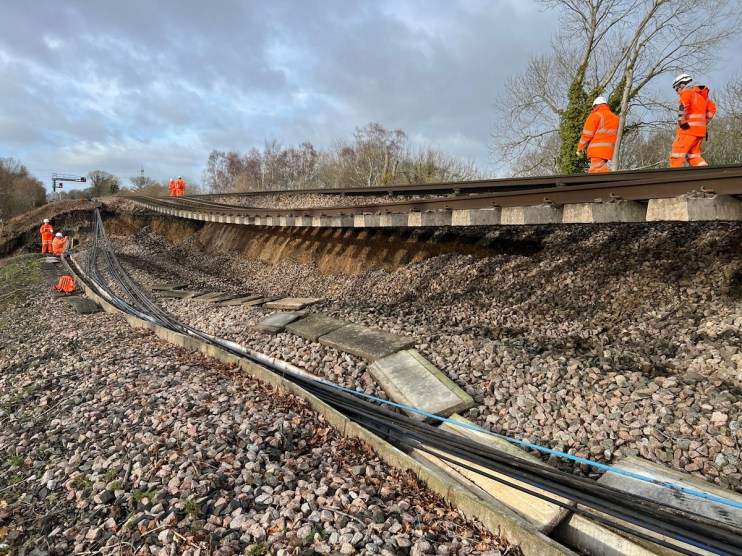Network Rail faces prosecution over deadly train crash

Network Rail faces prosecution over a train crash which killed three people.
Train driver Brett McCullough, 45, conductor Donald Dinnie, 58, and passenger Christopher Stuchbury, 62, died in the smash near Stonehaven, Aberdeenshire, on August 12 2020.
The case will call at the High Court in Aberdeen on September 7.
The ScotRail train derailed at 9.37am after it struck a landslide, hitting gravel and other stony material washed out from a drain.
The train hit the side of a bridge, causing its power car and one of its four carriages to fall down an embankment.
The case is listed on the Scottish Courts and Tribunals Service court rolls as a Section 76 indictment, a procedure which suggests a guilty plea may be offered.
The prosecution comes after the Crown Office and Procurator Fiscal Service (COPFS) considered reports from an investigation by Police Scotland, British Transport Police and the Office of Rail and Road – the independent safety and economic regulator for the country’s railways.
A Rail Accident Investigation Branch (RAIB) report published last March found that errors in the construction of a drainage system installed by Carillion meant it was unable to cope with heavy rain which fell in the area on the morning of the crash.
Carillion went into compulsory liquidation in January 2018.
The RAIB report made 20 recommendations to improve railway safety, many of which were directed at Network Rail.
A Network Rail spokesman said: “The Carmont derailment and the tragic loss of Christopher Stuchbury, Donald Dinnie and Brett McCullough was a terrible day for our railway and our thoughts remain with their families and all those affected by the accident.
“While we cannot comment on the ongoing legal process, the Rail Accident Investigation Branch report into Carmont made clear that there were fundamental lessons to be learnt by Network Rail and we have supported the investigation process.
“Since August 2020, we have been working hard to make our railway safer for our passengers and colleagues.
“We are committed to delivering on the recommendations made by RAIB and have also made other significant changes to how we manage the risk of severe weather to our network.
“Immediately after the accident, we inspected all similar locations across Britain and we also conducted a full survey of all types of trackside drainage on Scotland’s railway.
“We have invested millions towards improving the resilience of our railway and are rolling out new technology to help us better respond to extreme weather events.”
The spokesman said Network Rail has also changed how it manages the running of train services during periods when severe weather warnings are in place and has introduced a new team of weather experts to its control room to provide round-the-clock, real-time analysis on how the weather may affect Scotland’s railway.
He added: “From our day-to-day operations to our future planning, we are working hard to make our railway as safe and reliable as possible.”
Press Association – by Lucinda Cameron
